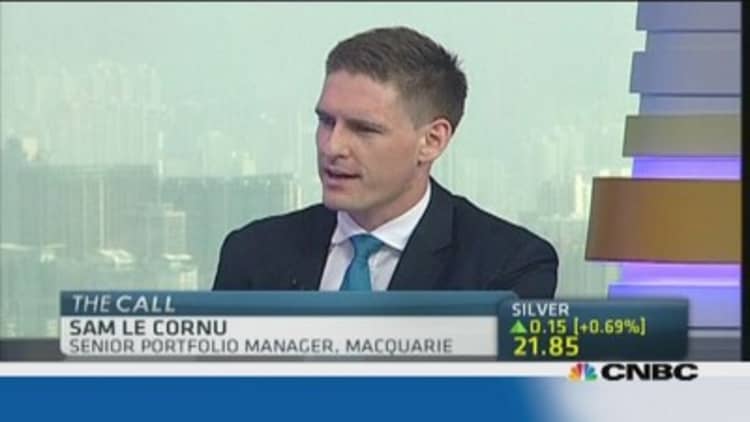Chinese reverse merger companies listed on U.S. exchanges are not inherently more toxic than similar U.S.-based firms, according to a recent study by accounting professors from three universities.
In fact, they have performed as well as or better than comparable companies trading in the United States.
"We find virtually no evidence that Chinese RMs are systematically more problematic than other comparable firms that are already listed on the same exchange," the professors say in the study, titled "Shell Games: Are Chinese reverse merger firms inherently toxic?"
The study was authored by Charles M.C. Lee of Stanford University, Kevin K. Li at the University of Toronto and Ran Zhang of Peking University.
It examined the financial health and performance of reverse mergers that came to the U.S. market between 2001 and 2010. China-based companies represented 85 percent of foreign reverse mergers.
(Read more: Rush for China plays ill-timed, Goldman warns)
A reverse merger was once a popular way for private firms, especially foreign-based, to gain a listing on the U.S. exchanges by merging with a public company while bypassing a more costly and rigorous initial public offering process.
In recent years, the practice came under severe regulatory scrutiny after a slew of firms, primarily China-based, were involved in accounting scandals and saw their trading suspended or halted.
Those include China MediaExpress, Rino International and China Agritech, which once traded on Nasdaq, as well as Heli Electronics.
A rare ruling came in July, when the Securities and Exchange Commission overruled an earlier Nasdaq decision to delist Clean Tech, a China-based reverse merger company that designs and manufactures steel towers for wind turbines.
However, the study found that Chinese reverse mergers outperformed their peers from inception through 2011, even after including most of the firms accused of accounting fraud.
(Read more: Asia's high-yield bonds still a premium play: HSBC)
"Despite the negative publicity (some from short sellers), we find little evidence that U.S. capital markets have been harmed by the admission of CRMs," the study authors wrote.
According to the study, while reverse merger companies are speculative in nature and are prone to bankruptcy, Chinese firms tend to be more mature and less speculative than their U.S. peers.
"They are larger, less levered, more profitable, less likely to have a qualified audit opinion, and more likely to be at the Growth or Mature stage of the business life cycle," the study said.

Chinese reverse mergers also outperform U.S. peers in profitability, cash flows, likelihood of receiving a qualified audit opinion, survival rate and changes in market liquidity, according to the study.
"The current Sino-phobic reaction to Chinese reverse mergers may be overblown," the authors concluded. "Our results do not support the view that CRMs are collectively exploiting a significant loophole in U.S. listing regulations."
Nevertheless, the flow of Chinese listings into the U.S. market has virtually frozen in recent years.
The aggregate market capitalization of U.S.-listed Chinese companies fell 72 percent in 2011 and 2012, according to a separate study by McKinsey & Co. earlier this year.
The McKinsey report noted that delisting of Chinese companies is not purely a U.S. phenomenon.
"Since 2008, around one in ten Chinese companies listed in Singapore has also been delisted or suspended," it said.


